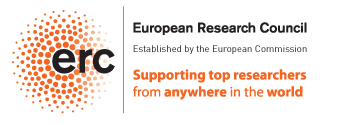ERC Starting Grant Project QAPPA
ERC Starting Grant Project QAPPA
(Quantifying the atmospheric implications of the solid phase and phase transitions of secondary organic aerosols)
1.2.2014-31.1.2019
The challenge: It has been shown, that the atmospheric Secondary Organic Aerosol (SOA) particles can be amorphous solid in their physical phase. The amorphous solid state provokes a rethinking of SOA processes as it may influence the partitioning of semi-volatile compounds, reduce the rate of heterogeneous chemical reactions, affect the particles’ ability to accommodate water and act as a cloud condensation or ice nuclei, and change their atmospheric lifetime. Because of the potentially important atmospheric implications, method development as well as studies in the laboratory and in the atmosphere in order to better characterize, understand, and model the occurrence and effects of glassy atmospheric aerosol particles are needed. In this research I will define the factors affecting the physical phase of SOA particles in the atmosphere, and finally find out what are the atmospheric implications of the physical phase.
Project Objectives: The ultimate goal of this study is to obtain a better understanding of formation mechanisms of secondary organic aerosol particles and their physical phase in the atmosphere as well as their impact on climate change. The main objectives are: 1) To develop new methods suitable for quantification of a) viscosity of the SOA material and b) kinetic limitations related to the up-take of water vapour and reactants by SOA particles. 2) To study effect of particle physical phase on atmospheric processes by investigating water uptake of particles in sub- and super-saturated conditions. 3) To link the research results on aerosol process models.

